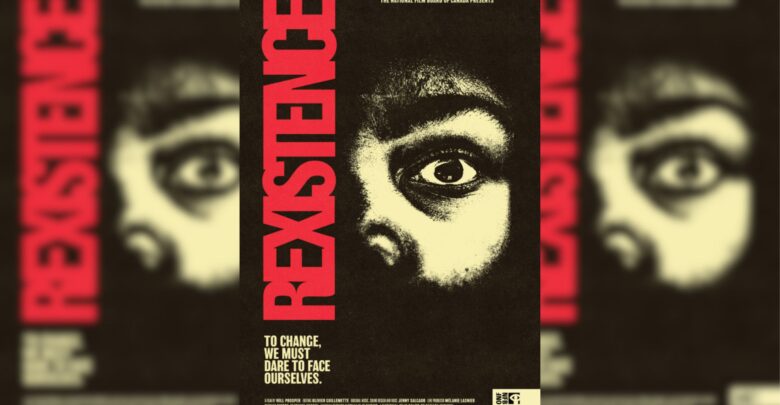‘ReXistence’ shows treatment of racialized Canadians at the hands of police
Recently released film, ReXistence, uses historical and modern footage to paint a picture of the treatment racialized Canadians face here in Canada.
 Supplied
SuppliedContent warning: The following article discusses racism and police violence.
ReXistence, is an almost corecore like film by Will Prosper that presents historical, and recent, clips and images of police brutalization, killings, and rising above.
The main goal of the film is to bring awareness to the historical, and current, experiences that Black and other racialized Canadians have when dealing with the police. And our viewing of police brutality as being uniquely American is something that Prosper specifically wants to change. He hopes the film will nudge Canadians to consider what happens here at home. “We often take a look at our neighbours, but we look at what’s going on over here,” Prosper said.
Prosper himself is a former RCMP officer. Prosper grew up in Montreal and has himself been profiled by police and didn’t have a great relationship with them. But he wanted things to change after being posted in northern Manitoba at 22-years-old. A main focus for him was the want to change the “way that police officers do complaints against each other.”
“It could’ve happened to me, my brother, a friend, anybody,” Prosper says
After becoming a police officer, he said “I’ve seen a lot of stuff. I understand why there’s still some stuff going on. I understand how hard it is to change the forces … I’ve seen things that were unacceptable and felt that they didn’t have the resources to change it.”
Prosper said his main goal was to do movies, and so that’s what he did. He had been an activist for a long time and after the killing of Fredy Villanueva in 2008, he was “trying to find a solution to make sure that it doesn’t happen to these racialized communities. It happened in the community that I was raised and born in. It could’ve happened to me, my brother, a friend, anybody.”
Prosper began making the film in 2020, finishing three years ago. And since, he said it was hard to stop accumulating images and clips which would fit within the film. “I’m still seeing some images nowadays of things that are happening now,” he said.
Another end of the documentary is the reminder of the historic weight and place Black Canadians have on Canada’s history. “The movie should let you know that we participated in building this country as well,” he said. He added that it’s important to document the highs and lows of the Black community in Canadian history so that we may reflect on it.
Western Canada is not exempt from police brutality against racialized Canadians
While most of the clips within the film are from eastern Canada, there are some which feature events close to home, like former Calgary Police Service (CPS) officer Alex Dunn who handcuffed a woman and then slammed her face into the ground.
And Prosper put clips from the west in to make sure it’s known that these problems are not unique to eastern Canada. “If you talk to Black communities from different areas, whether it’s Vancouver, Edmonton, or Calgary, they face a similar kind of action. It’s not something that is just in eastern Canada,” Prosper said.
He added that it is something for western Canadians to consider, and that a conversation surrounding the historic and modern treatment of all racialized people at the hands of Canadian police is needed.
“I wanted people to understand the feeling of the people that are being brutalized by the police or just have anxiety when they’re pulled over by the police. Putting a lot of images with the music in the background to get a sense of the feeling. What does it feel like for the person that is receiving this kind of treatment by a police officer?” Prosper explained.
In what Canadians can do, Prosper said a start can be to watch the film. And by watching the film, he hopes viewers get curious and ask questions about what they see in it. “It’s a conversation starter. It’s going to move you and make you ask ‘okay, what can I do?’” Prosper said.




